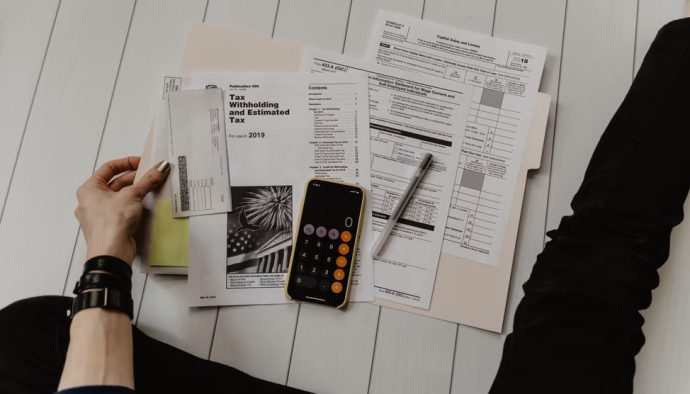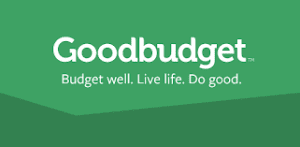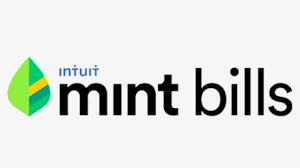Below you’ll find our most recent articles featuring tools to help you save money.

The Top 15 Tools to Help You Save Money Easily
How much time do you spend looking for ways to save money?
We all know that saving money is important because it helps us build our financial future.
But the problem is that saving money isn’t always easy.
In fact, sometimes it takes discipline and commitment to get ahead financially.
So to make things a little easier, we’ve come up with some tools to help you in your money saving journey.
To jump start the process, we’ve come up with a list of the top 15 tools that can help you save money easily.
With these 15 tools, you’ll never miss another opportunity to save money. They are designed to help you save money without you having to sacrifice convenience or your quality of life.
Are you ready to get help saving your hard-earned money? Let’s get started!
The Top 15 Tools to Help You Save Money
Some people are content enough to use a spreadsheet, while others prefer apps or websites that make it easy to track personal and business expenses.
If you’re looking for an app or website to help you track your personal finances and help you save money, there are many different options, but we recommend you start by investigating these apps:
1. Mint
 Mint is a free personal finance app that gives you a complete view of your finances, it was founded in 2006 by Aaron Patzer. Mint connects to your bank accounts, credit cards, and investment accounts to give you an up-to-date picture of your financial situation. It also gives you insights into your spending habits and shows you where you can save money.
Mint is a free personal finance app that gives you a complete view of your finances, it was founded in 2006 by Aaron Patzer. Mint connects to your bank accounts, credit cards, and investment accounts to give you an up-to-date picture of your financial situation. It also gives you insights into your spending habits and shows you where you can save money.
You can use Mint to create a budget, track your progress towards financial goals, and much more. Mint is one of the most popular personal finance apps out there, and it’s easy to see why. It’s free to use, it’s easy to set up, and it provides a ton of valuable features. If you’re looking for a way to take control of your finances, Mint is definitely worth checking out.
2. LearnVest
 LearnVest is a website that provides financial planning and advice to users. The founder of it is Alexandra Cavoulacos. She started the company in 2009 with the mission of helping women take control of their finances.
LearnVest is a website that provides financial planning and advice to users. The founder of it is Alexandra Cavoulacos. She started the company in 2009 with the mission of helping women take control of their finances.
The site offers a variety of tools to help users track their spending, set goals, and budget for future expenses. LearnVest also provides articles and resources on topics such as investing, credit management, and saving for retirement. In addition, the site offers a financial planning service that helps users create a personalized plan based on their unique situation. LearnVest is a valuable resource for anyone who wants to improve their financial health.
3. Goodbudget
 Goodbudget is an app that can help you manage your finances. It allows you to create a budget and track your spending. You can also use Goodbudget to share your budget with others. This can be helpful if you are trying to save money or stick to a financial plan.
Goodbudget is an app that can help you manage your finances. It allows you to create a budget and track your spending. You can also use Goodbudget to share your budget with others. This can be helpful if you are trying to save money or stick to a financial plan.
Goodbudget can also help you stay organized and on track. For example, you can use it to track your bills and payments. Goodbudget is a free app, and it is available for both iPhone and Android devices.
4. Level Money
 Level Money is a free mobile app that helps you manage your finances by telling you what you can spend each day, based on your income and bills. It connects to your bank account and tracks your spending, so you always know how much money you have available. You can also set goals, such as saving for a trip or paying off debt, and Level Money will help you stay on track. Plus, it offers helpful tips and advice on how to save money. Whether you’re trying to get a handle on your finances or just looking for a way to save money, Level Money is a great tool to use.
Level Money is a free mobile app that helps you manage your finances by telling you what you can spend each day, based on your income and bills. It connects to your bank account and tracks your spending, so you always know how much money you have available. You can also set goals, such as saving for a trip or paying off debt, and Level Money will help you stay on track. Plus, it offers helpful tips and advice on how to save money. Whether you’re trying to get a handle on your finances or just looking for a way to save money, Level Money is a great tool to use.
5. MoneyWiz
MoneyWiz was founded by Austrian-born entrepreneur Peter Mueller in 2010. It is a money management app that helps you keep track of your finances. Mueller had previous experience in the financial sector, working as an accountant and financial analyst. However, he was frustrated by the lack of user-friendly money management software on the market. So he set out to create his own solution.
MoneyWiz is now one of the most popular personal finance apps, with over 1 million users worldwide. It has been featured in major publications such as Forbes and The Wall Street Journal, and it has won numerous industry awards. Thanks to Mueller’s vision, MoneyWiz has helped countless people take control of their finances.
You can use it to budget your money, track your spending, and see where you can save money. It’s a great tool for people who want to get a handle on their finances. MoneyWiz is available for both iOS and Android devices.
6. Digit
 Digit is a financial service that helps people save money. The company was founded in 2014 by two former Google employees, Ethan Bloch and Jake Fuentes. Digit’s primary service is automated savings. The company connects to a customer’s bank account and analyzes their spending patterns. Based on this data, Digit determines how much money the customer can afford to save and transfers this amount into a separate savings account. Digit also offers other features, such as tools for tracking expenses and goal-setting. The company makes money through a monthly subscription fee, as well as fees charged by the financial institutions that hold customers’ savings accounts.
Digit is a financial service that helps people save money. The company was founded in 2014 by two former Google employees, Ethan Bloch and Jake Fuentes. Digit’s primary service is automated savings. The company connects to a customer’s bank account and analyzes their spending patterns. Based on this data, Digit determines how much money the customer can afford to save and transfers this amount into a separate savings account. Digit also offers other features, such as tools for tracking expenses and goal-setting. The company makes money through a monthly subscription fee, as well as fees charged by the financial institutions that hold customers’ savings accounts.
7. You Need a Budget (YNAB App)
 You Need a Budget, or YNAB for short is an app that helps people manage their money. It’s based on the philosophy that you should only spend money that you have, and that you should budget for all of your expenses. The app syncs with your bank account and credit cards and then helps you categorize your spending. You can also create goals, such as saving for a trip or a new car. When you reach your goal, YNAB will notify you. One of the unique features of YNAB is its “Rollover” feature. This allows you to roll over any money that you don’t spend in one month to the next month. This way, you can always have money available for unexpected expenses. Overall, YNAB is a helpful tool for anyone who wants to get their finances under control.
You Need a Budget, or YNAB for short is an app that helps people manage their money. It’s based on the philosophy that you should only spend money that you have, and that you should budget for all of your expenses. The app syncs with your bank account and credit cards and then helps you categorize your spending. You can also create goals, such as saving for a trip or a new car. When you reach your goal, YNAB will notify you. One of the unique features of YNAB is its “Rollover” feature. This allows you to roll over any money that you don’t spend in one month to the next month. This way, you can always have money available for unexpected expenses. Overall, YNAB is a helpful tool for anyone who wants to get their finances under control.
8. Acorn
 Acorn is a financial app that helps people save and invest their money. The app rounds up each purchase made using a linked credit or debit card to the nearest dollar and then invests the difference into a portfolio of low-cost exchange-traded funds (ETFs). Acorn also offer a savings account with no fees and allow users to withdraw their money at any time.
Acorn is a financial app that helps people save and invest their money. The app rounds up each purchase made using a linked credit or debit card to the nearest dollar and then invests the difference into a portfolio of low-cost exchange-traded funds (ETFs). Acorn also offer a savings account with no fees and allow users to withdraw their money at any time.
The app is free to download and use, but there is a monthly fee of $1 for accounts with less than $5,000. For larger accounts, the fee is 0.25% of the account balance. Acorns have been around since 2014 and have helped people save and invest over $700 million.
9. GasBuddy
 If you’ve ever been on a road trip, you know the feeling of anxiousness that comes when your gas light turns on. Will the next exit have a gas station? How much will it cost? Will I make it to my destination?
If you’ve ever been on a road trip, you know the feeling of anxiousness that comes when your gas light turns on. Will the next exit have a gas station? How much will it cost? Will I make it to my destination?
GasBuddy is here to help. It’s a phone app that tells you where the nearest gas station is and how much gas costs. You can even filter by type of gas, so you can find the cheapest option. Plus, users can post reviews and photos of gas stations, so you can get an idea of what to expect before you stop.
Next time you’re planning a road trip or just need to fill up, be sure to download GasBuddy and take the stress out of finding a gas station its a great tool to save money.
10. IVA-Advice
IVA-Advice is a great tool to save money because it helps you to negotiate with your creditors to reduce the amount of debt you owe. In addition, it provides guidance on how to manage your finances so that you can avoid getting into debt in the future. It also offers support and advice if you are struggling to make ends meet. IVA-Advice is a completely free service, and it is available to everyone in the UK. If you are struggling with debt, or if you are simply looking for ways to save money, IVA-Advice can help.
11. Budgetbaker
 Budgetbaker is an online budgeting tool that helps users track their spending and save money. It allows users to create a budget and then enter their income and expenses into the system. Budgetbaker also provides users with reports and analytics so they can see where their money is going. The system can also be used to set up savings goals and track progress over time. Budgetbaker is a great tool for anyone who wants to get a better handle on their finances. It is simple to use and provides users with the information they need to make informed decisions about their spending.
Budgetbaker is an online budgeting tool that helps users track their spending and save money. It allows users to create a budget and then enter their income and expenses into the system. Budgetbaker also provides users with reports and analytics so they can see where their money is going. The system can also be used to set up savings goals and track progress over time. Budgetbaker is a great tool for anyone who wants to get a better handle on their finances. It is simple to use and provides users with the information they need to make informed decisions about their spending.
12. Mvelopes
 Mvelopes is a personal finance app that helps you budget and saves money. It works by linking to your bank account and tracking your spending. You can set up budgets for different categories, and Mvelopes will help you stay within your budget by notifying you when you overspend. When you have money left over in a category, you can save it in an envelope (hence the name). This saves you from having to transfer money manually between accounts, and it also helps you keep track of your savings. Mvelopes are a great tool for anyone who wants to get a handle on their finances and start saving money.
Mvelopes is a personal finance app that helps you budget and saves money. It works by linking to your bank account and tracking your spending. You can set up budgets for different categories, and Mvelopes will help you stay within your budget by notifying you when you overspend. When you have money left over in a category, you can save it in an envelope (hence the name). This saves you from having to transfer money manually between accounts, and it also helps you keep track of your savings. Mvelopes are a great tool for anyone who wants to get a handle on their finances and start saving money.
13. Trim
 Trim is a type of software that helps you manage your digital life. It’s designed to help you keep track of all the different areas of your life that are important to you, from your finances to your health. Trim can also help you automate some of the tasks that you might otherwise have to do manually, like budgeting or tracking your fitness goals. In short, Trim is designed to make your life easier and more organized. And who doesn’t want that?
Trim is a type of software that helps you manage your digital life. It’s designed to help you keep track of all the different areas of your life that are important to you, from your finances to your health. Trim can also help you automate some of the tasks that you might otherwise have to do manually, like budgeting or tracking your fitness goals. In short, Trim is designed to make your life easier and more organized. And who doesn’t want that?
14. Mint Bills
 Mint Bills is a free online service that helps you keep track of your bills and budget. It’s simple to use – just enter your bill information and Mint Bills will create a custom budget for you. You can see at a glance what bills are due when, and how much money you have left to spend. Mint Bills also offers reminders and alerts, so you’ll never miss a payment. Plus, you can view your bill history and payments, so you can see where your money is going. Whether you’re trying to save money or just stay on top of your finances, Mint Bills is a great tool to use.
Mint Bills is a free online service that helps you keep track of your bills and budget. It’s simple to use – just enter your bill information and Mint Bills will create a custom budget for you. You can see at a glance what bills are due when, and how much money you have left to spend. Mint Bills also offers reminders and alerts, so you’ll never miss a payment. Plus, you can view your bill history and payments, so you can see where your money is going. Whether you’re trying to save money or just stay on top of your finances, Mint Bills is a great tool to use.
15. PocketGuard
PocketGuard is a money management app that helps you track your spending, set budgets, and save money. It syncs with your bank account and credit cards to give you a real-time view of your finances. You can also create custom budgets for specific categories, like food, gas, or entertainment. PocketGuard also has a handy feature that rounds up your purchases to the nearest dollar and automatically saves the difference into a separate account. So, if you spend $3.50 on coffee, PocketGuard will round up to $4.00 and transfer $0.50 into your savings account. Over time, those small increments can really add up! PocketGuard is a great way to stay on top of your finances and start saving money without feeling like you’re depriving yourself.
Frequent Asked Questions
What is the 70/30 rule?
The 70/30 rule is a simple way to help you achieve a healthy balance in your life. The rule is that you should spend 70% of your time on things that make you happy, and 30% of your time on other things. That means that if you have a job that you hate, you should only be spending 30% of your time at work. The rest of your time should be spent doing things that make you happy, like spending time with family and friends, pursuing hobbies, or taking care of yourself. It can be easy to get caught up in the rat race and forget what makes us happy. But if we can remember the 70/30 rule, it can help us find the balance we need to lead happier, healthier lives.
How can I save a lot of money fast?
There are a few things you can do if you want to save money quickly. One option is to cut back on your spending. Look at your budget and see where you can cut corners, such as eating out less or buying fewer new clothes. Another way to save money is to make more money. If you have some extra time, you could pick up a part-time job or start freelancing. Finally, you could also put your money into a high-yield savings account so that it will earn interest and grow over time. By following these tips, you can start saving up a significant amount of money in no time.
How can I save money daily?
There are a number of small things you can do on a daily basis that can add up to big savings. For example, brewing your own coffee instead of buying it every day can save you a lot of money over time. Skipping the afternoon latte and bringing your lunch to work are other simple ways to curb your spending. You can also save money by taking advantage of discounts and loyalty programs. Many stores offer discounts for loyalty card holders, so be sure to take advantage of these deals when possible. Finally, try to stick to a budget. Planning ahead and setting aside money for specific expenses can help you stay on track and avoid overspending. By following these simple tips, you can easily save money each day.
What is the 30-day rule?
The 30-day rule is a simple saving technique that can help you to break the cycle of impulse spending. Basically, the rule requires you to take 30 days to think about any purchase that you’re considering. If after 30 days you still feel like you need or want the item, then you can go ahead and buy it. This waiting period gives you time to assess your needs and determine whether the purchase is truly necessary. It also allows you to save up the money for the item if it’s something that you really do want or need. The 30-day rule can be applied to any type of purchase, no matter how small or large. So next time you’re feeling the urge to splurge, take a step back and wait 30 days before making your decision. You may find that you save yourself both money and buyer’s remorse in the long run.
What is the 50 30 20 budget rule?
The 50 30 20 budget rule is a simple way to help you manage your money. The rule breaks down your spending into three categories: 50% for essentials like rent and groceries, 30% for discretionary items like entertainment and travel, and 20% for savings and debt repayment. This rule can be a helpful starting point for creating a budget, but it's important to remember that every person's financial situation is unique. You may need to adjust the percentages based on your income and expenses. For example, if you have a high income, you may be able to save more than 20%. Or if you have a lot of debt, you may need to put more towards debt repayment. Ultimately, the goal of the 50 30 20 budget rule is to help you live within your means and reach your financial goals.